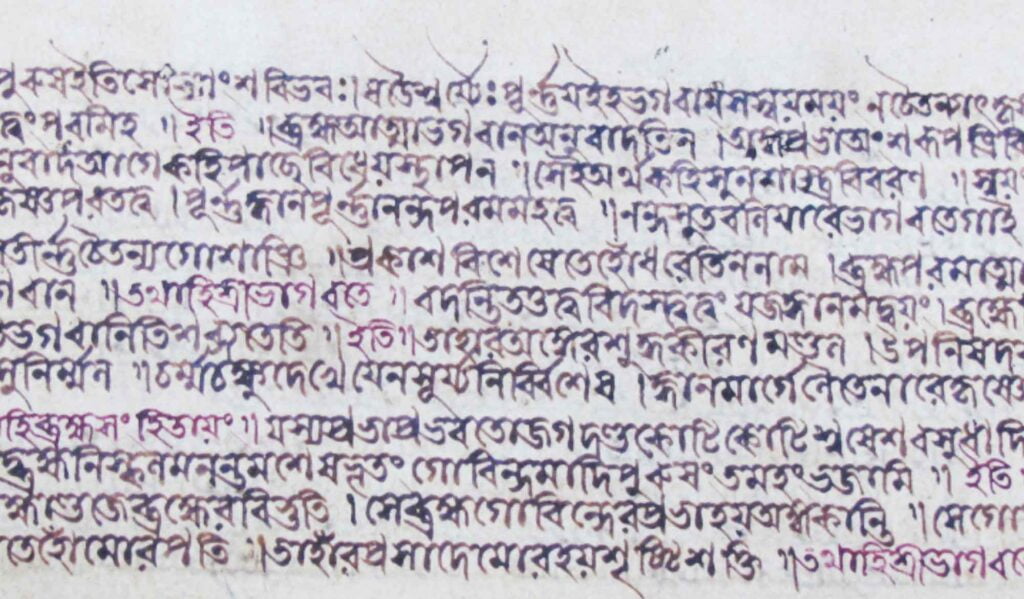Vaiṣṇava Siddhānta Mālā Part 1 – Chapter Ten
Śabda, Pratyakṣa, Anumāna – Tintī Pramāṇa
(The Three Evidences – Spiritual Sound, Direct Perception and Inference)
Question: What is pramāṇa (evidence)?
Answer: That which determines truth is known as pramāṇa.
Question: How many kinds of pramāṇa are there?
Answer: There are three kinds.
Question: What are they?
Answer: Śabda (spiritual sound), pratyakṣa (direct perception) and anumāna (inference).
Question: What is śabda-pramāṇa?
Answer: All the Vedas, which are avatāras of svataḥ-siddha-jñāna, are śabda-pramāṇa – this is the best amongst pramāṇas. This is because without such a pramāṇa, it is not possible to be aware of that truth which lies beyond matter.
Question: Why can’t Īśvara and the spiritual world be experienced through pratyakṣa and anumāna?
Answer: All knowledge produced from the senses is called pratyakṣa-pramāṇa; anumāna is the way of perceiving that knowledge by means of inference. These can only give knowledge of this world.
Question: Then why do we accept pratyakṣa and anumāna for understanding paramārtha–tattva (spiritual principles)?
Answer: Pratyakṣa and anumāna only remain effective when they exactly confirm the perfect accomplishments of śabda-pramāṇa.









